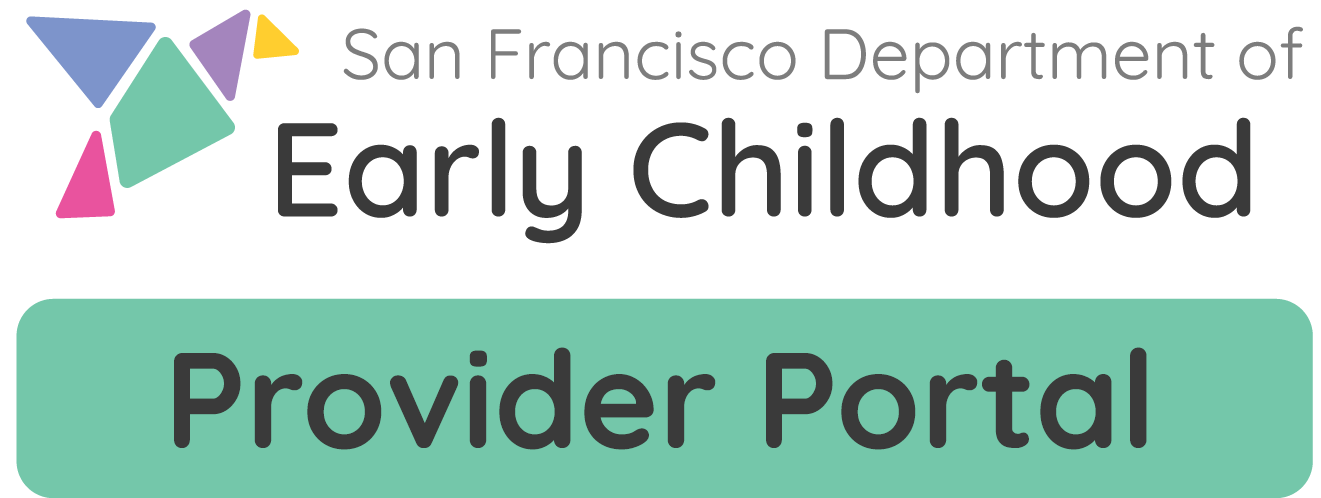
Workforce Initiative
When early educators thrive, children thrive. We want San Francisco to have the best and brightest early educators in the nation so that every child has access to high-quality early learning and enters Kindergarten prepared to succeed.
San Francisco voters approved Proposition C in June 2018. It established a gross receipts tax that would provide additional City funding to support early care and education (ECE) for 0-5 year-olds. Approximately half of the revenue generated by Prop C is dedicated to providing much-deserved compensation increases and development support for early educators working in Early Learning For All centers and Family Child Care (FCC) programs.
DEC administers these funds through our Workforce Initiative, which provides additional compensation and educational pathways to support a highly-qualified, well-compensated, diverse, and stable workforce.
We deliver on this mission through two key strategies: Workforce Compensation and Workforce Development.
Workforce Compensation
DEC’s Workforce Compensation strategy ensures that all educators working in Early Learning For All Centers and FCCs earn a living wage and that educator pay increases commensurate with educational attainment, qualifications, and experience. Our compensation programs also consider the percentage of low-income families being served to equitably promote educator retention at our highest need early learning sites.
We accomplish this through two programs:
1. CARES 3.0 (Compensation and Retention Educator Stipends)
CARES 3.0 provides eligible educators with twice annual stipends to augment their salaries. Stipend amounts range from $4,000-$39,000 per year depending on program demographics, full- or part-time employment schedule, and teacher qualifications. Educators apply directly to DEC and are paid each Spring and Fall.
2. EESSG (Early Educator Salary Support Grant)
EESSG provides grants to early care and education agencies that serve at least 50% low-income families. Agency administrators, working in collaboration with their staff and DEC, administer grant funding to increase eligible educators’ salaries to a minimum of $28/hour with the potential to earn up to $39.27/hour depending on education and qualifications.
Workforce Development
Our Workforce Development strategy is designed to recruit new educators to the field, give current educators opportunities for educational advancement and provide support, guidance, and financial incentives to everyone along the way.
Pathways Program
The primary program supporting our Workforce Development strategy is our Pathways Program. Pathways is a comprehensive program designed to help early learning professionals grow, thrive, and achieve their career goals. DEC works with partners across San Francisco to offer structured pathways supporting every step of the professional development and educational attainment trajectory in the ECE field, from General Educational Development (GED) to Master’s degree. Pathways programs include academic scholarships, on-the-job training, core support services like laptops and textbooks, personalized coaching and more.
Workforce Development Pilot Programs
As we continue to develop and refine our Pathways Program, DEC is also administering two shorter-term Workforce Development pilot programs. These pilots were developed prior to the launch of our Pathways Program as a temporary means to support and recognize those educators already pursuing professional development who may not have had the benefit of participating in DEC-funded Pathway programming.
1. SEEPD (Stipend for Early Educator Professional Development)
SEEPD supports educators working at City-funded early care and education programs by providing stipends for educational and professional milestones completed within the preceding twelve months.
2. Professional Development Advising
Professional Development Advising offers free multilingual individual and group advising to early educators. We focus specifically on evening and weekend advising hours to align with working educator’s schedules and to fill gaps in traditional advising options that are not usually available outside of standard business hours.
